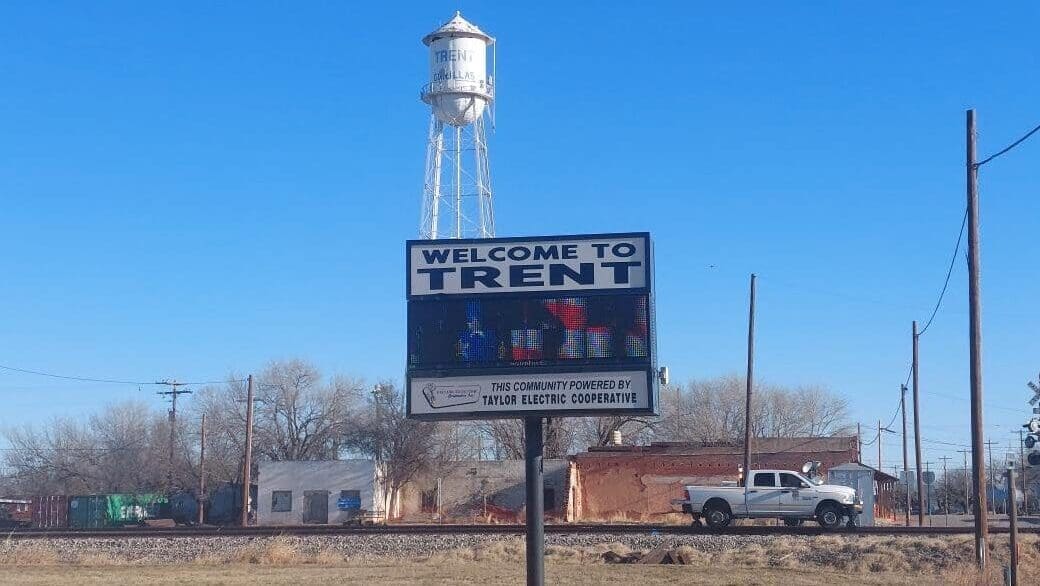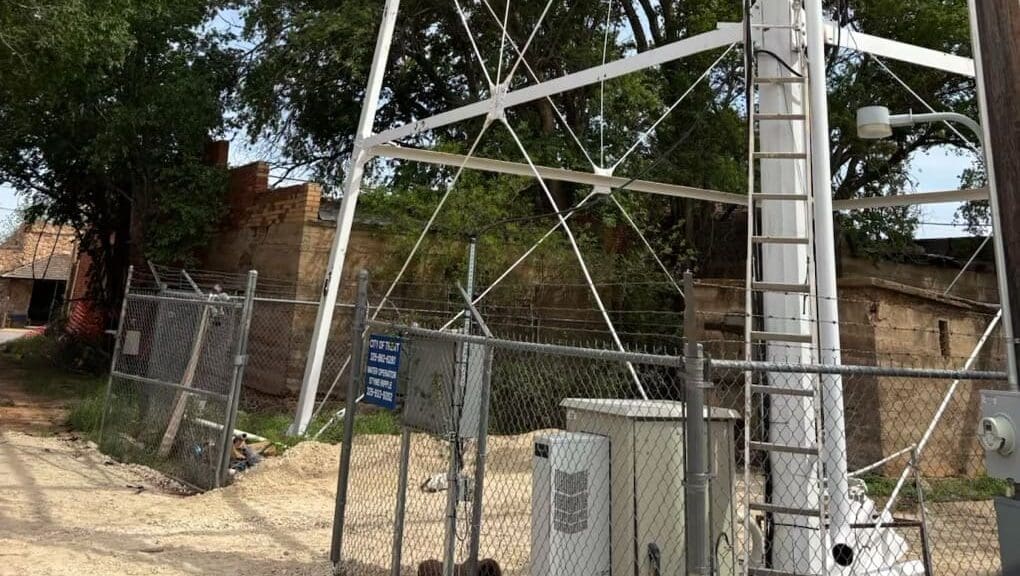In the windswept plains of West Texas, just off Interstate 20 and about 30 miles southwest of Abilene and 150 miles southeast of Lubbock, lies the City of Trent. With just under 300 residents, this rural town has long worked to maintain essential services despite aging infrastructure and limited resources.
For five years, Trent’s 50,000-gallon water tower sat out of commission, leaving the community out of compliance with the Texas Commission on Environmental Quality (TCEQ) and vulnerable during emergencies.
“We didn’t have enough water storage per household to meet TCEQ requirements,” said Mayor Leanna West, who has led the city for two decades. “We had a 30,000-gallon tank that still worked, but the tower needed standard maintenance, a full interior repaint, and replacement of parts that had been in the ground for 80 years. It was just a very expensive project we couldn’t take on without outside help.”
Enter Communities Unlimited (CU).

The $119,396 loan, made possible through a blend of Revolving Loan Fund (RLF) and Community Development Financial Institution (CDFI) funding, was paired with technical support from CU staff who guided the city every step of the way.
Mayor West worked closely with CU’s Community Infrastructure and Lending Teams. Community Environmental Management Advisor Britton Howe provided hands-on technical assistance throughout the process — helping gather financial documents, reviewing quotes and audits, coordinating communication with the Lending Team, and supporting the loan application from submission to board approval. Senior Economic Development Loan Officer Chris Ranniger facilitated the financing, working alongside Britton to ensure the project stayed on track.

“Those old valves used to take two men with six-foot cheater pipes just to try turning them on or off — and that was risky,” said Mayor West. The city replaced the outdated altitude valve with a more cost-effective float system, which now allows the town to track the water level in the tower. The crew also repaired the tower’s screens and filters to prevent birds and insects from entering the tank, added a new overflow valve, and installed separate inlet and outlet lines to improve water flow and pressure.
Once the mechanical work was complete, a crew from Kansas specializing in water tower restoration arrived to repaint the interior and bring the tower back to full working order. As of spring 2025, the final steps — sanitizing, flushing, and refilling — are underway.
“We’ll finally have that extra 50,000 gallons available,” Mayor West said. “That’s going to make a huge difference for our 296 water connections. It’ll improve our pressure and supply and is absolutely critical for fire protection, especially with grass fire season coming.”
For Mayor West, who has overseen many funding applications over the years, the speed and ease of working with Communities Unlimited stood out.
“I’ve never seen anything move this quickly,” she said. “It was the easiest experience I’ve ever had with a loan or grant. Usually, it’s an 8- to 12-month wait — or even longer.”
"Communities Unlimited provided the fastest, most helpful support we’ve ever had. They bent over backward to help us, and we’re very grateful.”
Now that the water tower is back online, Trent is already looking ahead. The city’s water lines are between 75 and 85 years old, and the connection to its water supplier — the City of Sweetwater, located 12 miles away — hasn’t seen a major upgrade since 1972.
“We’re working on funding for the next phase,” Mayor West said. “Most of our city council is in their 60s to 80s. We’ve all been doing this a long time, and we want to leave the system in better shape than we found it — for the next generation.”
Thanks to CU and the city’s dedicated leadership, residents now have the water security they need — and a clearer path forward.

